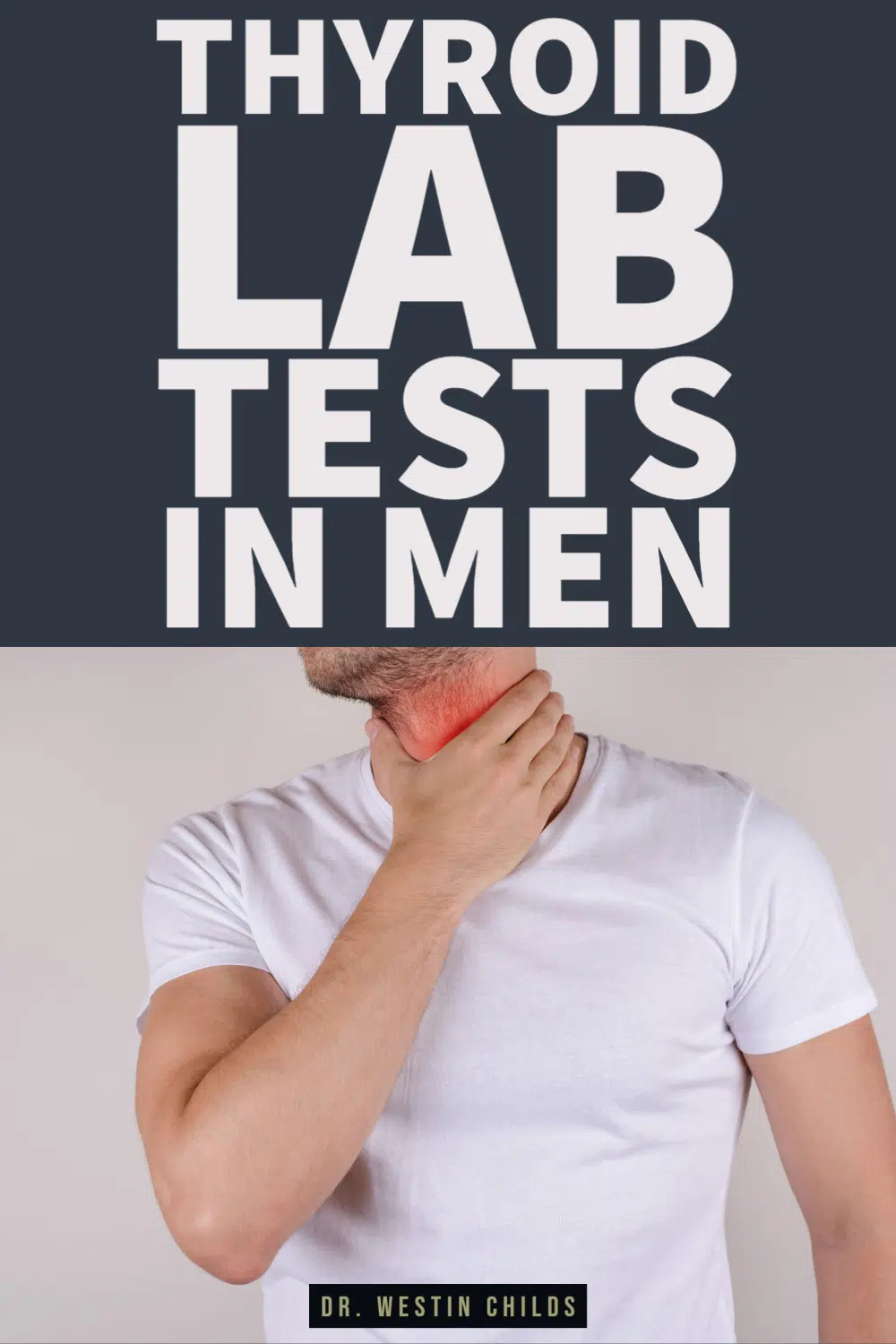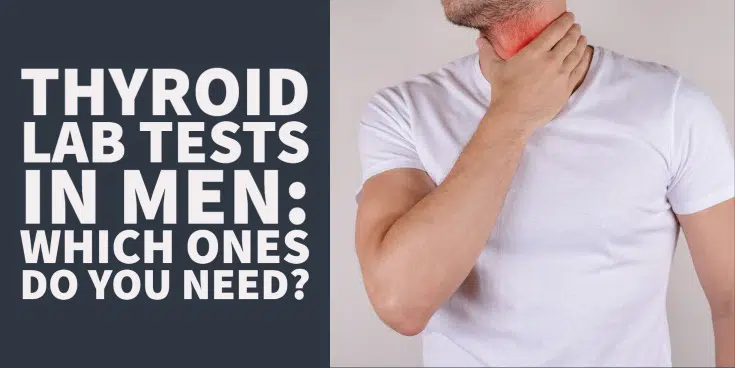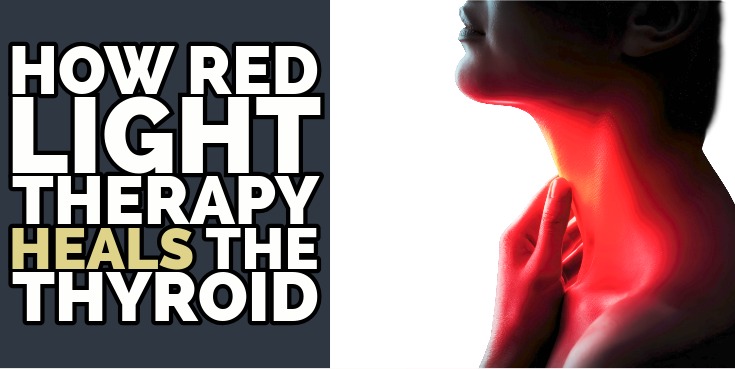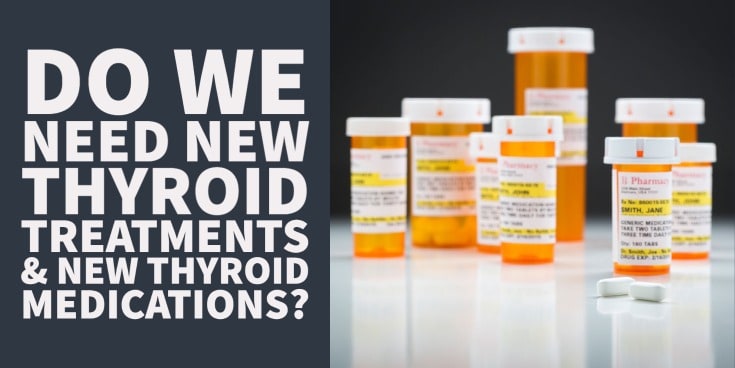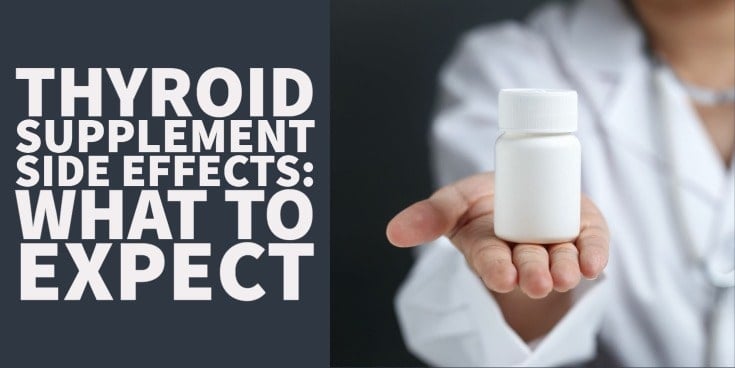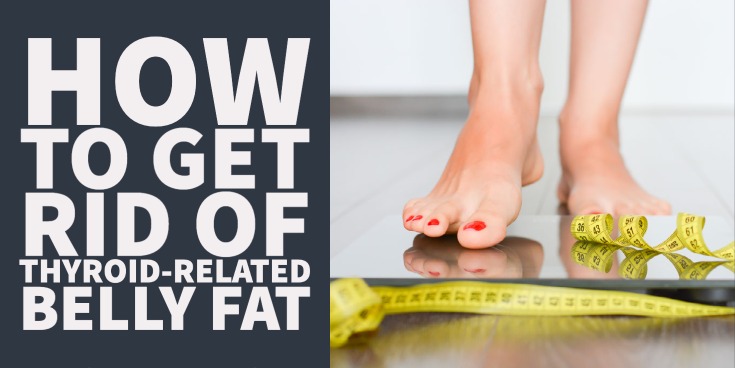Both men and women have a thyroid gland so does that mean that thyroid lab tests should be the same for both genders?
Not exactly…
While it is true that both men and women have a thyroid gland, the way that thyroid disease impacts both genders is not the same.
Much of this has to do with how thyroid dysfunction impacts important sex hormones, especially testosterone.
Today we will take a dive into thyroid lab tests for men and discuss the key thyroid lab tests (and other hormone tests) that men should be getting if they suspect or know that they have a thyroid condition.
Article highlights:
- Why thyroid disease impacts men and women differently
- Which thyroid lab tests men need the most
- Symptoms specific to men that indicate they need to get their thyroid tested
- Additional hormone tests that should be ordered for every man who has thyroid disease
- Why men have a much lower rate of thyroid disease compared to women
- And much more
Let’s jump in…
Thyroid Lab Tests That Men Need
Even though there are many different lab tests to assess thyroid function, most doctors do not order all of them.
I won’t get into the reasons for why this happens but let me just say that this paired-down approach to thyroid management and thyroid testing has led to a number of unsatisfied thyroid patients (both men and women).
So if you are seeing information here that is all new to you, that is why.
For the purposes of this article, let me explain which thyroid lab tests are actually required and which thyroid lab tests are optional or situational.
This information will give you a better idea as to which thyroid lab tests you should request from your doctor (or which you are ordering yourself online):
- TSH (required) – This is a measurement of thyroid-stimulating hormone and tells you if your pituitary gland is functioning.
- Free T3 (required) – Free T3 is a measure of free and unbound T3 circulating in your bloodstream. This is the most powerful thyroid hormone in your body.
- Free T4 (required) – Free T4 is a measure of free and unbound T4 circulating in your bloodstream. T4 is not as active or as powerful as T3.
- Reverse T3 (optional/situational) – This is a thyroid metabolite that competes with T3 binding at the cellular level. High levels of reverse T3 are associated with problems for some people.
- Total T3 (option/situational) – A measurement of both free and bound T3 in the bloodstream. This is not always required but can provide additional information.
- Thyroid peroxidase antibodies (required on initial workup) – A measurement of antibodies to proteins in your thyroid gland. The presence of these antibodies may indicate autoimmune thyroid disease.
- Thyroglobulin antibody (required on initial workup) – A measurement of antibodies to proteins in your thyroid gland. The presence of these antibodies may indicate autoimmune thyroid disease.
- Thyroid-stimulating immunoglobulin (only required if hyperthyroidism is suspected) – A measurement of antibodies that attach to receptors on the thyroid gland. The presence of these antibodies may indicate autoimmune hyperthyroidism.
- Thyroid ultrasound (situational) – Ideal for looking at the size, texture, and quality of the thyroid gland in assessing for things like thyroid nodules, thyroid cancer, thyroid cysts, and goiter.
This list of thyroid lab tests will allow you to assess for the most common thyroid maladies including:
- Hypothyroidism
- Hyperthyroidism
- Hashimoto’s thyroiditis
- Subclinical hypothyroidism
- Hyperthyroidism
- Graves’ disease
- Thyroid nodules
- Thyroid cancer
This list of thyroid diseases covers the gamut so as long as you get the above tests you can safely screen for all of the major thyroid issues.
The hardest part may be getting your doctor to order the required tests, though, so be prepared for some pushback.
If you find that your doctor is unwilling to order these tests you can always take the initiative on your own and order them using online lab companies like letsgetchecked (more are emerging every year to meet the increasing demand from patients).
Obtaining these thyroid lab tests is important but does not provide you with the full picture.
From here, you still need some further tests.
Here’s why:
Additional Lab Tests That Men With Thyroid Problems Should Order
The above lab tests listed will only test your thyroid function, they will not test the other systems that are often negatively impacted by thyroid dysfunction (1).
This is very important, especially for men, because thyroid dysfunction often alters testosterone levels.
And, as a man, you should consider anything that impacts your testosterone level as something that is of the highest priority.
As far as hormones are concerned, testosterone contributes more to your well-being (2) than any other.
For this reason, checking your testosterone if you suspect a thyroid problem is mandatory.
The reverse is true as well.
If you have been diagnosed with low testosterone then you should also get your thyroid checked.
In addition to testosterone, there are other tests that should be assessed in conjunction with your thyroid.
These tests give you information on additional systems in the body such as the inflammatory cascade, hormone metabolism, and nutrient status.
Due to the nature of how your thyroid impacts other systems in your body, if you have a thyroid problem then you are at increased risk for developing problems in these systems as well.
Additional tests that ALL men who suspect that they have thyroid disease include:
- Free Testosterone (required) – This checks for the amount of free and unbound testosterone in your bloodstream.
- Total Testosterone (required) – This test checks for how much free/unbound and bound testosterone is in your bloodstream.
- Estradiol (situational but ideal) – Thyroid problems may lead to high estrogen in certain situations. High estrogen may counteract some of the positive effects of testosterone.
- Sex Hormone Binding Globulin (required) – Sex hormone binding globulin (SHBG for short) is impacted by your thyroid. Higher SHBG levels mean less free and active testosterone for your body.
- ESR (situational) – This is a non-specific test for inflammation. Ideal if you have or suspect thyroid autoimmune disease.
- CRP (situational) – This is another non-specific test for inflammation and is ideal if you have or suspect thyroid autoimmune disease.
- Serum B12 (required) – Up to 40% of low thyroid patients suffer from low B12. Grab your serum B12 to test for this. It’s cheap and easy to replace B12 and may improve your energy.
- Serum magnesium (required) – Thyroid dysfunction impacts magnesium excretion. Check your RBC or serum magnesium levels and supplement if it’s low.
- 25 Hydroxy vitamin D (required) – Low Vitamin D makes you more likely to develop many health conditions (3). It’s a cheap and easy test to get and if low, it’s easy to resolve with a D3 supplement.
- Serum fasting Insulin (required if overweight) – Both high and low thyroid increase your risk of developing insulin resistance. Check this lab test if you are overweight.
- Hgb A1c (required if overweight) – See above.
- Serum 8 am cortisol (situational) – Cortisol can be helpful if you are still experiencing low energy or fatigue after taking thyroid medication or using testosterone replacement therapy.
- Cholesterol panel (required) – High cholesterol is an early warning sign of thyroid dysfunction. Check your cholesterol panel frequently.
- Liver function panel (required if overweight) – Non-alcoholic fatty liver disease is the emerging #1 cause of liver disease (4) in the United States. Check your liver status if you are overweight or if you have insulin resistance.
Admittedly, I’ve included a fair amount of tests above but that’s because I’d rather err on the side of too much information than not enough.
You will also notice that not all of these tests are absolutely required.
If you are having a hard time getting your doctor to order all of these tests then just start with testosterone levels as well as the full thyroid lab panel listed in the previous section.
Symptoms That Indicate Men Need to Check Their Thyroid
Because men and women tend to experience different key symptoms when they have thyroid dysfunction, it’s worth spending some time on what those differences are.
After all, if you know what to look for then you will be more likely to get the correct tests and, by extension, the correct diagnosis.
You will find that thyroid symptoms can vary quite dramatically from man to man but there are some themes that you can hold on to.
One theme is that of low testosterone symptoms.
Remember:
Thyroid dysfunction leads to testosterone dysfunction.

And even if you can ignore a non-specific symptom of thyroid dysfunction like fatigue, it’s hard to ignore some of the more prominent symptoms of low testosterone like a lack of sex drive.
You may also find that low testosterone symptoms act as a canary in the coal mine for your thyroid.
In other words, low testosterone symptoms can tip you off that there may be a thyroid problem brewing.
Here are some of the symptoms that men with thyroid problems may experience:
- Decreased sex drive
- Erectile dysfunction
- Inability to build lean muscle mass
- Weight gain
- Delayed ejaculation
- Diagnosis of low testosterone
- Gynecomastia (breast enlargement)
- High emotionality
- More generic symptoms of hypothyroidism including hair loss, fatigue, weight gain, cold intolerance, constipation, dry skin, mood changes, joint or muscle pain, and low body temperature.
- More generic symptoms of hyperthyroidism including weight loss, fatigue, hair loss, diarrhea, tremors, heart palpitations, elevated body temperature, and rapid heart rate.
Do Normal Ranges Differ for Men vs Women?
From the perspective of standard lab tests and lab ranges, the answer is no.
Obviously, this doesn’t intuitively make sense as men and women differ in key characteristics (5) such as the average amount of skeletal muscle mass (6), average height (7), average heart size (8), and so on.
Because the thyroid impacts the metabolism of the body, you would suspect that higher metabolic demand would mean higher requirements for thyroid hormone.
And while this does seem to be the case with certain variables (such as BMI (9) and age (10)), the general consensus is that we shouldn’t change management (11) based on this information.
I don’t find this argument very convincing but that’s mostly irrelevant as there is something more important you can focus on:
Instead of focusing on the difference in normal ranges for men and women focus on the concept of optimal vs normal thyroid lab ranges.
You will find the biggest improvement in your symptoms and well-being by taking this approach.
So what’s the difference between normal thyroid lab test reference ranges and optimal thyroid lab test reference ranges?
The standard thyroid lab test reference ranges provided by your lab company is ideal for screening out thyroid disease.
In other words, they are helpful for determining WHO has a thyroid problem.
If 100 men randomly get tested for thyroid disease, these tests will help identify those who actually have it.
What they are not good for is monitoring the management of thyroid disease.
In other words, they do a poor job of telling you if your treatment is adequate or optimal.
What do I mean?
Consider this:
Imagine you are a man who was just diagnosed with hypothyroidism based on a TSH of 7.5 mU/L.
This lab result firmly puts you outside of the normal reference range of 0.45 to 4.5 mU/L.
With this result, the diagnosis is obvious, this man is hypothyroid (for those unaware, a high TSH is a marker for LOW thyroid function and a low TSH is a marker for HIGH thyroid function).
Now imagine that this same man undergoes treatment with levothyroxine and, upon retesting, finds that his TSH dropped down to 3.0 mU/L (the TSH will always drop with the use of thyroid medication).
This new TSH result of 3.0 now firmly puts him in the normal range of 0.45 to 4.5 mU/L but here’s the problem:
Despite retesting in the normal range, he still is experiencing low thyroid symptoms like weight gain, fatigue, and low testosterone.
The doctor of this hypothetical man refuses to alter his dose of thyroid medication further because he is technically normal based on the reference range.
Believe it or not, this is pretty standard for most doctors and one of the main reasons that patients with thyroid disease remain unhappy and symptomatic even while taking thyroid medication.
So what’s the solution?
The key here is to make sure that once you are diagnosed with a thyroid problem you use the optimal ranges to determine if your thyroid management is adequate.
In this hypothetical case, optimizing the TSH closer to around 0.5 to 1.0 mU/L would be ideal.
This would require a higher dose of levothyroxine (thyroid medication) and perhaps even a combination of thyroid medications.
But this is where things can get difficult.
Convincing your doctor to increase your dose when you are technically normal is often met with significant resistance.
Using the standard reference ranges that were helpful when you were diagnosed will fall very short once you have your diagnosis and are undergoing treatment.
For a more in-depth understanding of this concept please see this article.
You will also learn why many men need combination thyroid medications and why additional thyroid lab tests (like the ones we discussed in previous sections) are necessary.
Why Women Get Thyroid Disease More Commonly Than Men
Even though men can and do get thyroid disease, it occurs at a rate much lower than that of women.
Some estimates suggest that men account for roughly 20% of all thyroid diseases but you will find data that suggests a higher (12) or lower number depending on where you look.
Why this occurs is somewhat of a mystery but there have been a few attempts to explain it.
Obviously, genetics plays a strong role in many cases but there is something more to it.
Research has suggested that testosterone may play a protective role against the development of autoimmune thyroid disease.
This matters because autoimmune thyroid disease represents the most common cause of both hyperthyroidism (Graves’) and hypothyroidism (Hashimoto’s).
At baseline, men obviously have much higher levels of testosterone compared to women.
This higher baseline level of testosterone in men may at least partly account for these differences.
Whether or not it accounts for all of the difference is irrelevant.
What I want to focus on here is the importance of testosterone replacement therapy for both men and women, but especially men.
If you are a man and you have a known diagnosis of autoimmune thyroid disease then the use of testosterone replacement therapy may be of benefit to your treatment.
Testosterone replacement therapy (TRT) will not only help alleviate the symptoms of low testosterone but it may also provide benefit to immune dysfunction (13) which is the underlying cause of thyroid autoimmune disease.
This is just another reason to assess your testosterone status and treat it if necessary.
Final Thoughts
As a man, thyroid disease will impact you differently from that of a woman.
One of the key differences is how thyroid dysfunction impacts testosterone levels in both genders.
Low testosterone will result in symptoms that will be hard to ignore and will likely prompt you to go to your doctor.
When checking for thyroid dysfunction, make sure you are using the standard reference ranges for diagnosis and the optimal ranges for management.
In addition to treating your thyroid, you may find additional benefits from the use of testosterone replacement therapy or TRT.
In cases of thyroid autoimmunity, TRT may actually provide an underlying benefit to the immune system as well as help control many low testosterone symptoms.
Now I want to hear from you:
Were you aware of the differences in thyroid disease in men and women?
Did you know that thyroid dysfunction can impact testosterone levels?
Have you had your testosterone levels checked?
Have you had a complete thyroid lab panel?
Leave your questions or comments below!
Scientific References
#1. https://pubmed.ncbi.nlm.nih.gov/15142373/
#2. https://www.ncbi.nlm.nih.gov/books/NBK216164/
#3. https://pubmed.ncbi.nlm.nih.gov/30335299/
#4. https://www.ncbi.nlm.nih.gov/books/NBK541033/
#5. https://pubmed.ncbi.nlm.nih.gov/3529284/
#6. https://www.ncbi.nlm.nih.gov/pmc/articles/PMC4285578/
#7. https://www.ncbi.nlm.nih.gov/pmc/articles/PMC4961475/
#8. https://www.ncbi.nlm.nih.gov/pmc/articles/PMC4190707/
#9. https://www.ncbi.nlm.nih.gov/pmc/articles/PMC6408740/
#10. https://www.ncbi.nlm.nih.gov/pmc/articles/PMC5058901/
#11. https://www.ncbi.nlm.nih.gov/pmc/articles/PMC7141356/
#12. https://www.frontiersin.org/articles/10.3389/fendo.2020.00229/full
#13. https://www.ncbi.nlm.nih.gov/pmc/articles/PMC5075254/
